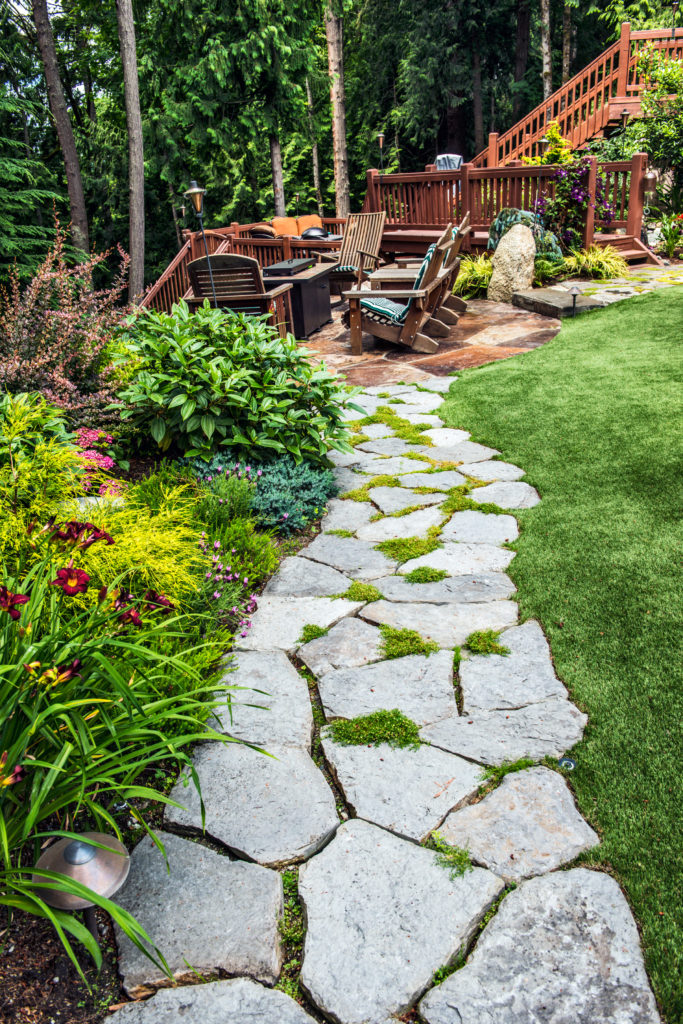How to Create a Natural Rock Patio: A Comprehensive Guide
Transform your outdoor space with a stunning natural rock patio that exudes elegance and durability. This guide will provide you with a step-by-step approach to creating a patio that complements your surroundings and enhances your outdoor living experience.
1. Planning and Preparation
Proper planning is crucial to ensure a successful patio. Determine the desired size and shape of the patio, considering the available space and your functional needs. Select rocks that are suitable for your location's climate and soil conditions. Prepare the area by clearing vegetation and excavating the site to a depth that allows for a stable base and proper drainage.
2. Base Construction
A solid base is essential for patio longevity. Create a sub-base of compacted crushed gravel or decomposed granite to provide stability and prevent settling. Install edging around the perimeter to contain the rocks and prevent migration.
3. Rock Placement
Arrange the rocks on the prepared base in a desired pattern. Start with the larger rocks for the perimeter and work your way inwards with smaller rocks. Ensure the rocks are firmly settled and level, using a rubber mallet to tap them into place. Fill the gaps between rocks with smaller stones or pebbles for a natural look.
4. Backfilling and Compacting
Backfill the spaces between the rocks with soil or gravel to provide support and prevent weeds. Use a hand tamper or plate compactor to compact the infill material, ensuring it is level and stable.
5. Drainage and Finishing Touches
Install a drainage system to prevent water accumulation by creating a slight slope away from your home. Fill the gaps between rocks with sand or other permeable materials to improve drainage. Add finishing touches such as flagstones or pavers to create accents or define seating areas.
6. Maintenance and Enjoyment
Regular sweeping or blowing will keep your patio clean and free of debris. Occasionally, reseal the rocks with a penetrating sealer to protect them from moisture and stains. Over time, the patio may settle slightly, so periodically check for loose rocks and make necessary adjustments.
Benefits of a Natural Rock Patio
- Durability: Natural rocks are incredibly durable and can withstand heavy foot traffic and extreme weather conditions.
- Aesthetic Appeal: The natural look of rocks adds an organic beauty to any outdoor space, complementing various architectural styles.
- Environmental Sustainability: Using natural rocks reduces the need for manufactured materials, promoting environmental conservation.
- Heat Reduction: Rocks absorb and release less heat than other materials, making patios more comfortable during hot summers.
- Low Maintenance: Natural rock patios require minimal maintenance compared to other types of patios, saving you time and effort.
Conclusion
With careful planning and execution, you can create a natural rock patio that adds value, beauty, and functionality to your outdoor space. Embrace the natural beauty of rocks and enjoy the tranquility and timeless elegance of a patio that blends seamlessly with its surroundings.

How To Build A Flagstone Patio In One Day Merrypad

How To Lay A River Rock Patio Traditional Life

Flagstone Patios How To Guide Paving Cost Diy Vs Contractor Install Mutualmaterials Com

Flagstone Patios How To Guide Paving Cost Diy Vs Contractor Install Mutualmaterials Com

How To Build A Pea Gravel Patio Farmhouse On Boone

Flagstone Patios How To Guide Paving Cost Diy Vs Contractor Install Mutualmaterials Com

How To Build A Pea Gravel Patio Farmhouse On Boone

Flagstone Patios How To Guide Paving Cost Diy Vs Contractor Install Mutualmaterials Com

Natural Flagstone Patio Fire Pit Stone Backyard

Building A Stone Patio In One Day Natural Diy Project
Related Posts







